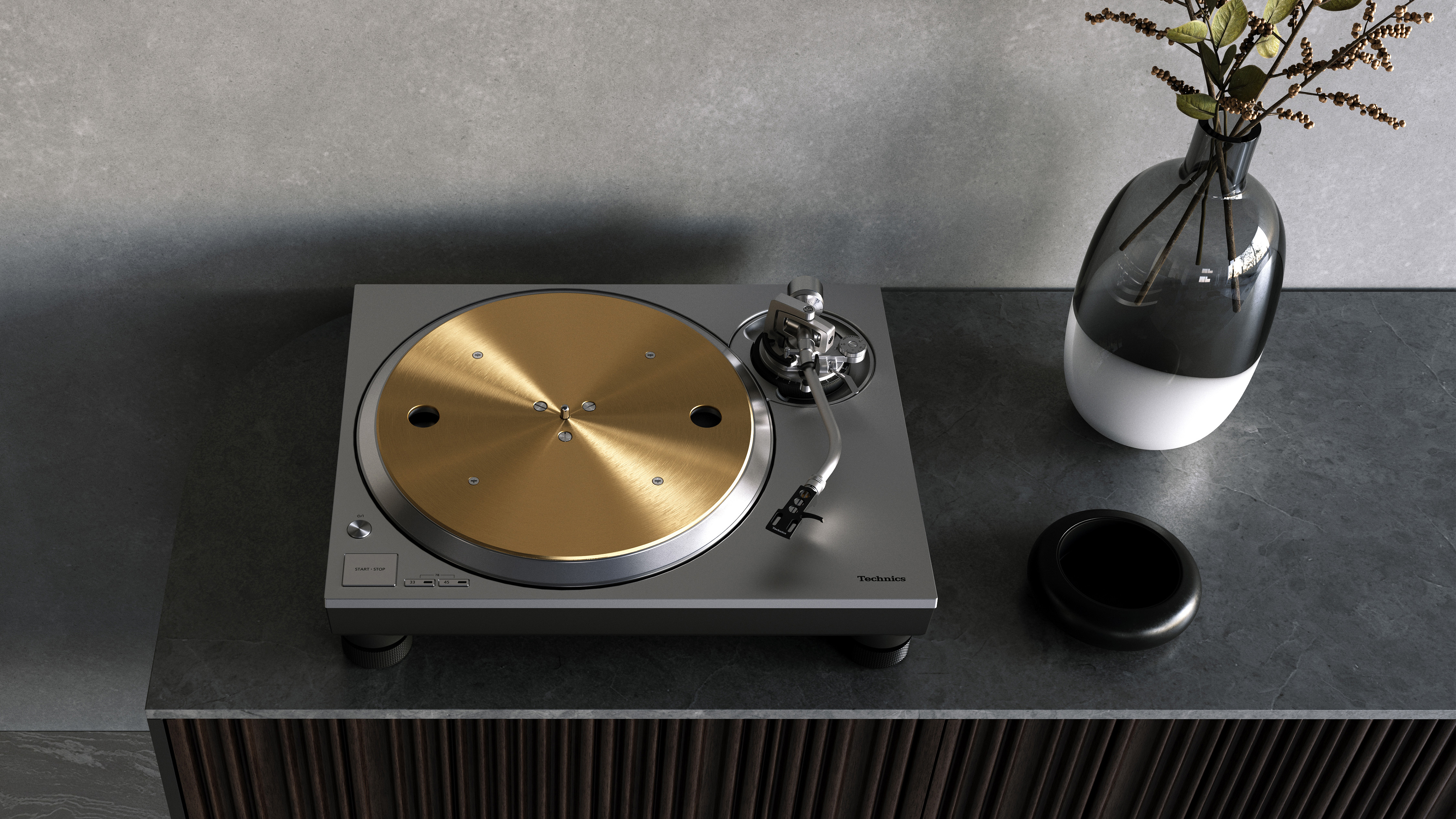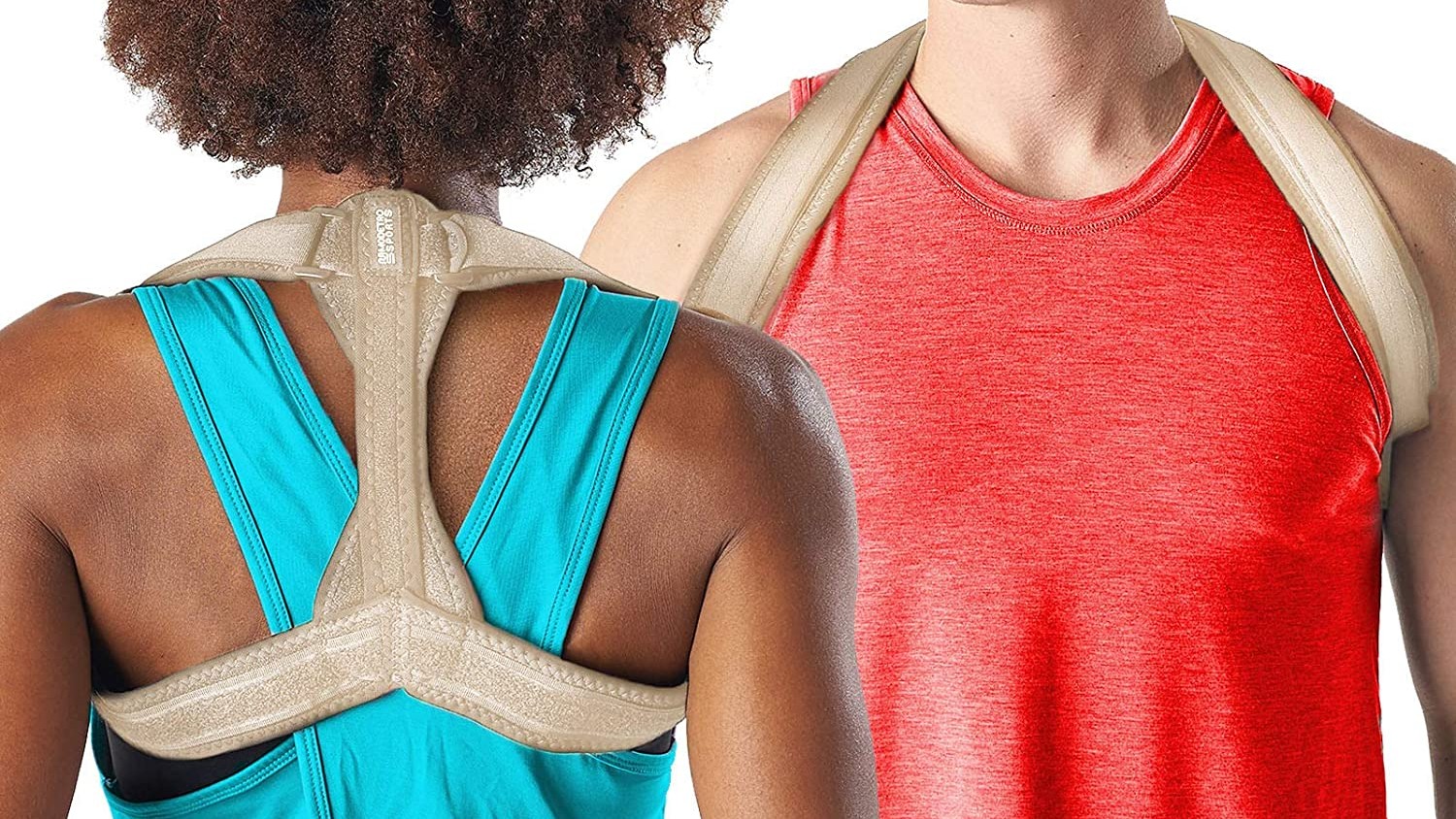
The best posture correctors are much in demand right now. And that's not really surprising. With the pandemic confining everyone to their homes, millions of us have spent far too many hours over the last year and a half slumped on the couch. While that might feel comfy, over time this leads to a rounded posture that promises to play havoc with your mental and physical health.
In fact, even if you've done the right thing and sat at a proper desk, in an ergonomically designed chair, there's still a good chance you’ve developed poor posture habits. Whether or not you know the difference between good and bad posture (and many of us simply don’t), it's very easy to slip into bad habits, especially when you start getting engrossed in your work.
Using a posture corrector to improve your posture will help you break those habits. And with better posture, you'll look more attractive and confident, feel less stress, find it easier to breathe (an important factor given the continued threat of Covid), suffer fewer tension headaches and pain in the back, neck and shoulders, and generally have more energy and vitality.
So how do posture correctors work, and how do you choose one? Read on, as we reveal everything you need to know.
How do posture correctors work?
If your body is in poor alignment, this puts unnecessary strain on your muscles and ligaments. A posture corrector is a device you wear to pull your back muscles into correct alignment, and thus realign your body to its proper position.
Posture correctors are made from a wide variety of materials, such as neoprene or spandex, and some incorporate hard elements such as a disc or rod for extra support. They can typically be worn under your normal clothes discreetly.
However, posture correctors are not designed to be worn forever. Instead, the idea is that they re-educate you and build 'muscle memory', so that you're able to form good posture habits and stick to them once you stop wearing the posture corrector.
Sign up to the T3 newsletter for smarter living straight to your inbox
Get all the latest news, reviews, deals and buying guides on gorgeous tech, home and active products from the T3 experts
What kinds of posture corrector are there?
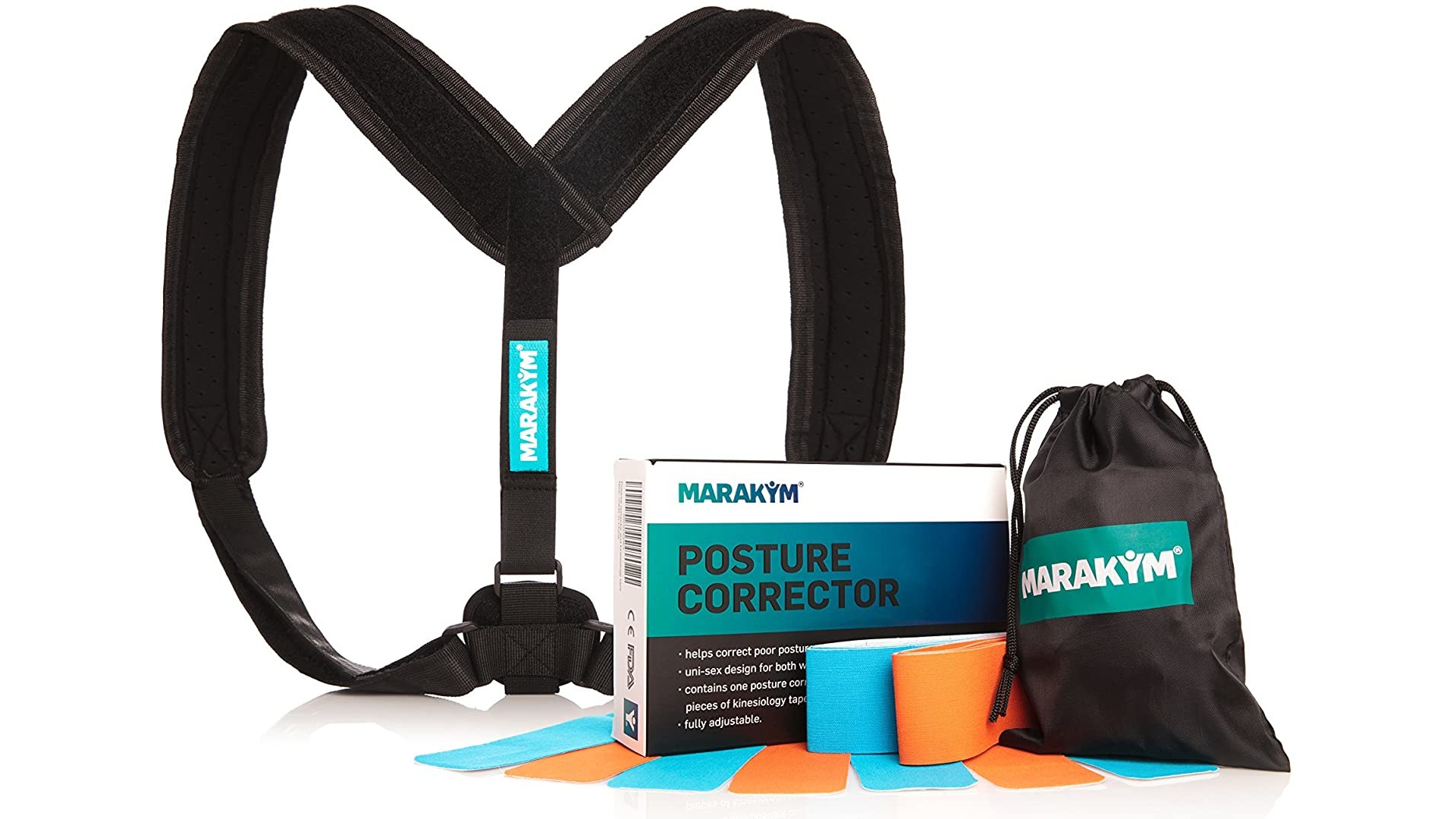
There are many different types of posture correctors on the market today.
One of the most popular types is the cross-back brace, which is made with elastic or adjustable straps, making it lightweight and flexible. This kind of posture corrector is designed to hold your shoulders back, and stop you from slouching or slumping.
The moulded back brace, in comparison, is heavier and more robust. Designed to help people with serious posture problems, it typically includes hard elements such as rods or plates to support the spine.
The longline back brace is the toughest of all posture correctors, and is used for people suffering serious injury. This type should only be used at the recommendation of a medical professional.
A support belt, aka a lumbar support belt, wraps around the waist, and is designed for people suffering lower back pain; especially those who spend a lot of time sitting, or lifting heavy objects.
Finally, a number of new posture correctors are coming on the market with electronic sensors, which can give you useful information on the quality of your posture via an app.
Do chiropractors recommend posture correctors?
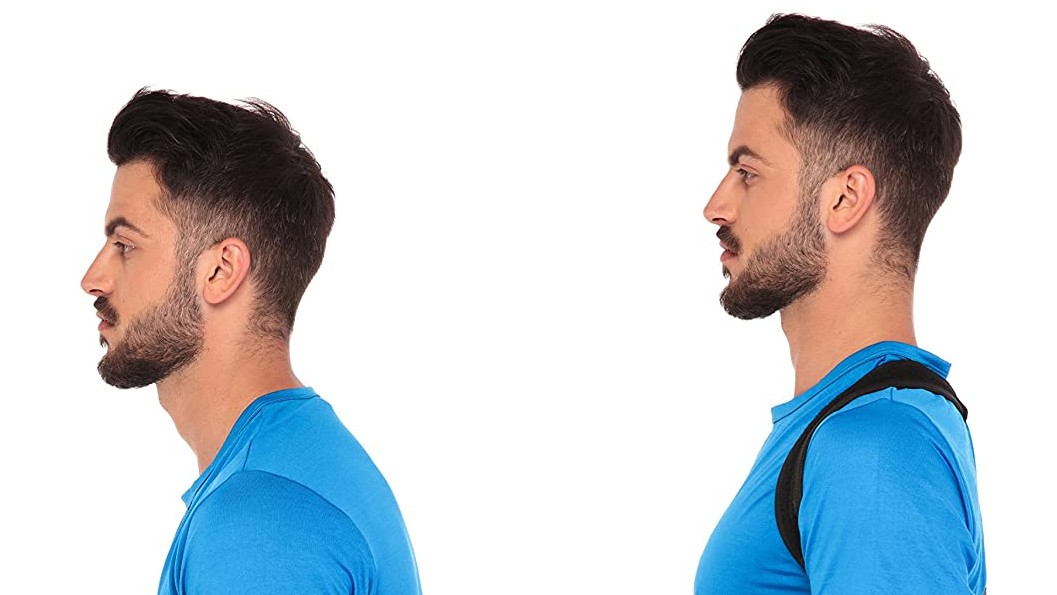
Doctors and chiropractors agree that posture correctors can work, but only up to a point. They can’t fix your posture problem by themselves: their fundamental purpose is simply to educate you into developing good posture habits.
If they are used on a temporary basis in this way, they can certainly help improve your posture. However, it’s worth adding that the best way to develop good posture over time is by improving your strength and flexibility. The NHS has a great guide to the kind of exercises that can improve your posture here.
By using a posture corrector in combination with the right exercises, it should be possible to help strengthen your back, neck and shoulders over a couple of months, by which time you should no longer need the posture corrector.
Are posture correctors safe?
Posture correctors are generally considered safe, as long as they are used correctly in consultation with your doctor or chiropractor. However, we stress once more that they should be used as a temporary measure only.
Prolonged use will cause your muscles to weaken while the posture corrector takes the strain of supporting your weight, which may make the problem worse and even cause serious injury.
Tom May is a freelance writer and author of the book, Great Ted Talks: Creativity. He has been editor of Professional Photography magazine, associate editor at Creative Bloq, and deputy editor at net magazine. He has also worked for a wide range of mainstream titles including Radio Times, NME, Heat, Company and Bella.
-
 I spent 6 weeks with the FoodMarble Aire 2: here’s what I learned about my gut health
I spent 6 weeks with the FoodMarble Aire 2: here’s what I learned about my gut healthI’ve been testing the clever breath-testing gadget with the companion app over several weeks to find out if it delivers on its promises
By Lee Bell
-
 Oil pulling is going viral on TikTok for stopping morning breath – but does it actually work?
Oil pulling is going viral on TikTok for stopping morning breath – but does it actually work?4 hacks that prevent morning breath, according to a sleep expert
By Bethan Girdler-Maslen
-
 These limited edition McLaren x Loop earplugs are what you need for Formula 1 season
These limited edition McLaren x Loop earplugs are what you need for Formula 1 seasonMcLaren teams up with Loop on limited edition noise-reducing earplugs
By Bethan Girdler-Maslen
-
 3 reasons why you wake up at 3am every night – and how to avoid it
3 reasons why you wake up at 3am every night – and how to avoid itAlways waking up in the middle of the night? This could be why…
By Bethan Girdler-Maslen
-
 Therabody experts give 7 tips for perfecting your sleep routine for World Sleep Day
Therabody experts give 7 tips for perfecting your sleep routine for World Sleep DayFrom breathing exercises to sleep masks, here’s how to prioritise sleep, according to experts
By Bethan Girdler-Maslen
-
 Loop Dream review: super soft earplugs to help you snooze soundly, even if you’re a side sleeper
Loop Dream review: super soft earplugs to help you snooze soundly, even if you’re a side sleeperSquishy silicone and uniquely shaped ear tips take Loop’s nighttime earplugs to dreamy heights
By Joanna Ebsworth
-
 Can’t get to sleep? Grounding bed sheets could be the answer – but I need convincing
Can’t get to sleep? Grounding bed sheets could be the answer – but I need convincingIs this the future of sleep tech?
By Bethan Girdler-Maslen
-
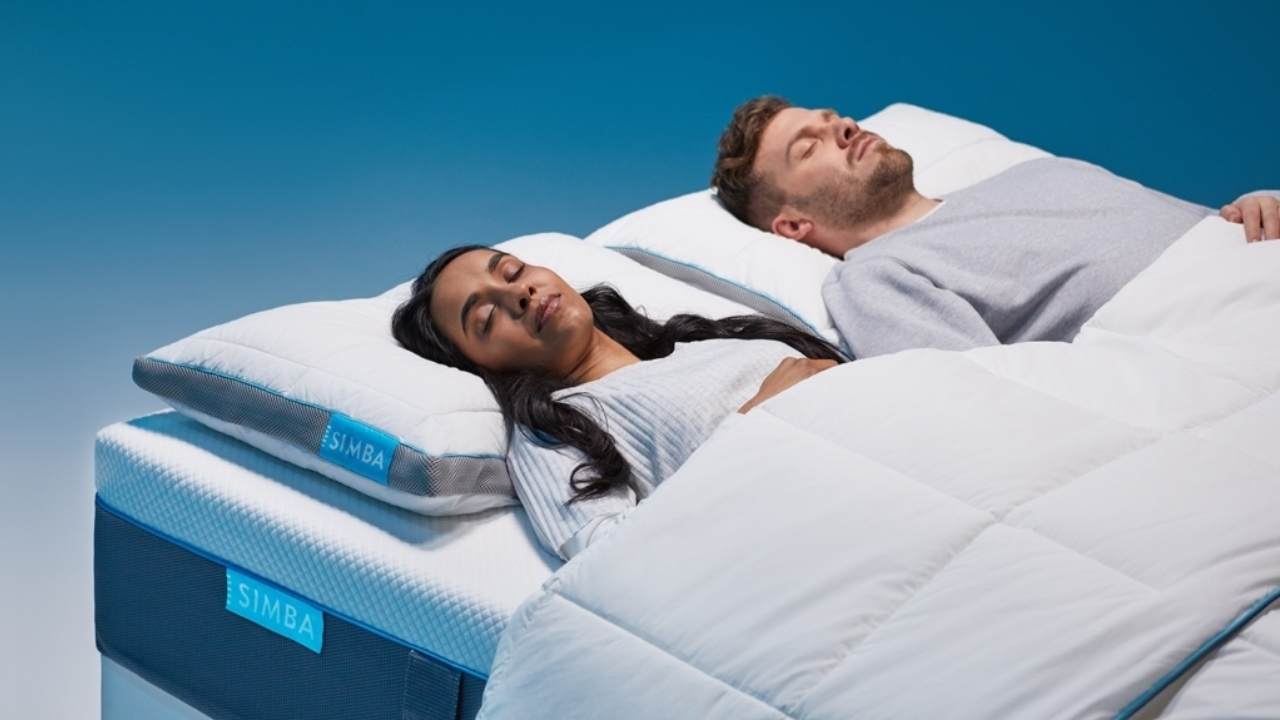 Simba reveals 3 shocking signs of sleep deprivation on the body
Simba reveals 3 shocking signs of sleep deprivation on the bodySimba’s latest study reveals the main physical effects of sleep deprivation
By Bethan Girdler-Maslen

